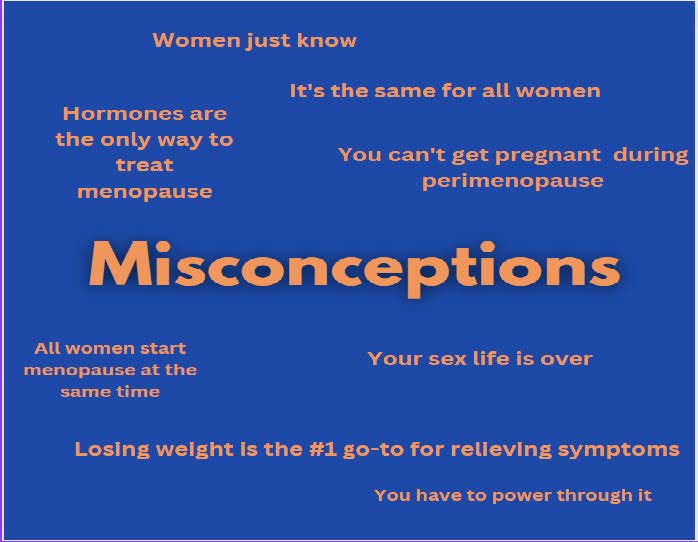The pauses in a woman’s life; that’s Perimenopause, Menopause, and Post-Menopause.
Historically, no one has ever done a good job explaining menopause to women. And for that reason, many women think must suffer through and, eventually, they’ll get past it. But, ladies, it doesn’t have to be that way. You don’t need to accept anyone’s incorrect, ill-advised, or just plain malicious advice.
Simple, understandable, clear, and concise definitions;
Perimenopause means “around menopause” and refers to the time during which your body makes the natural transition into menopause. Perimenopause is also called the menopausal transition. Women start perimenopause at different ages.
Menopause is “official” 12 months after a woman’s last period.
Post-menopause includes the years following menopause. For about 85% of women, the menopausal symptoms will diminish completely. GREAT NEWS!!!!
Now we have basic definitions, I say basic because the pauses are unique to each and every one of us.
Common misconceptions about our pauses; there are so many misconceptions and they come from all different sources. We often as women and the people who love women, receive unwanted or uncalled-for advice about the female body. The number one person who feeds us the wrong information is ourselves! A common misconception we have ourselves for our own pauses are that;
- Women always know when menopause hits
- You should just power through it
Both of those are wrong and do us no justice at all. Timeframes for when peri/menopause start or stop, they’re not universal, like I said above, we’re all unique!
Another place we hear information from is our friends, and our spouses and the most common tend to revolve around relationships. The beginning of peri/menopause is often plagued by the unrealistic idea that it’s the beginning of the end of a woman’s active sex life. That is absolutely absurd, we don’t dry up like old crones, I promise! It’s actually completely possible to get pregnant during perimenopause, no matter what your girlfriend with 8 kids says. As your periods either slow down or go into overdrive, there is no indication that it’s safe to engage in unprotected sex.

I’ve saved the most controversial for last; our professional MDs. In no way do I discredit any professional who has gone the mile to learn their field, but that doesn’t mean that every doctor knows what’s best every time. Recently there was an experience where my doctor made unneeded suggestions about common menopause symptoms and the suggestion was to, “lose weight”. I know the doctor meant well, but I needed a solution that was more in-depth and that required a bit of research or even some questions to be asked.
At the end of the day, what I’m saying is that; we as women need to remember that we are unique and our pauses are not like anyone else’s, but more importantly, we need to advocate for ourselves when we feel our needs are not being met.
To read more about my recent experience, check out my Facebook here.
Thanks for reading and stay kind!